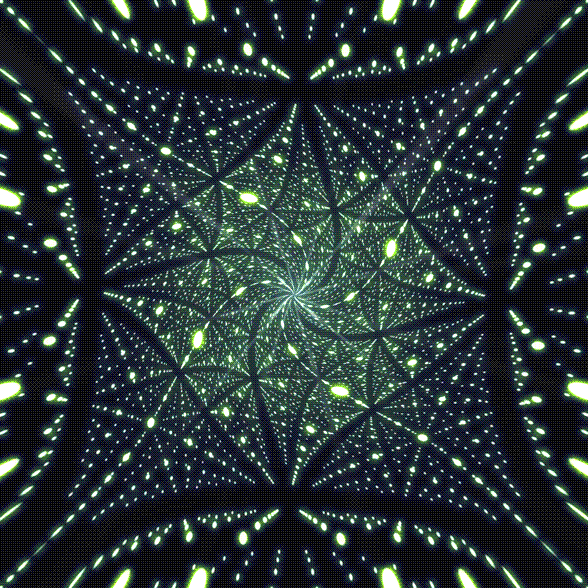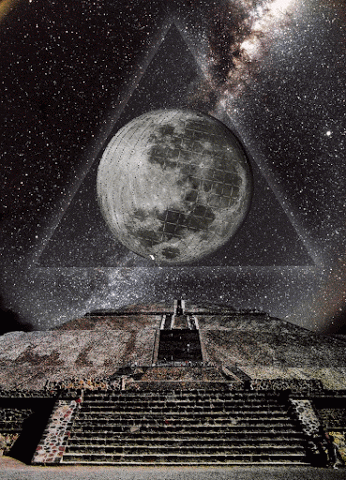Chess 2 Chess Part Deux (Finale)
by Eric G. SatterwhiteUnlike sporting enthusiasts of sundry persuasions without exception sporting spectacles specifically chess art admirers, have one mirthful and invaluable privilege-- not being present at the competition-- interested match advocates can record the participating parties practices velveting full forbearance; all the aspects of the chess challenge skirmish, exampling the wonderment of how long each participant busted moves this or that way.
The sheer mental machinations (executed in silence) would seem to fear rid International organizers of Grandmaster tournaments-- and fast rising new jack matches from the uneasiment-- of renting out large halls due to sub-par marketing stratagems and assumed public lack of interest.
In fact, the maximal concert halls in cosmopolitan European cities, when appropriating riveting chess tournaments/matches are typically too close in global scheduling, especially if the hosting City is the venue for competition at the chess world championships.
There is another paradoxical paradigmatic pattern. Many supporters of testy temperamental/tempo events, like--say tennis matches hockey,basketball, football, boxing, mixed martial arts, etc., are quite satisfied with a comfortable chair observing TV. Individually, and groups who passionately love sports shows-- generally prefer this cozy platform, a four cornered room projecting the pixel-ed shrine podium the natural platform of the stadium centerpiece(home address).
Seemingly the lover of chess the silent type-- dreamy contemplative by nature has the destined role of the cloaked chess viewer. Indeed. Since television coverage of chess tournaments (virtually nonexistent) rather, I should say rare, cause many chess fans great interest, deemed by many--amazing to view (Grandmaster he cuts faster)chess championships live!
For the enthusiast one can never replace those very special, with no comparable experiences, viewership (real-time)of a live sequential/vibrational communication with the masters and grandmasters unleashing neuron/synaptic graphics in the designated tournament scenario.
Connoisseurs of chess turn out to read/study the competing parties, not only to see the 'chessy' characters on the screen - mainly for the genuine competent competitive compassion competing peering players ply personally, so to speak-- in a subordinate nature-- to figuratively smell the scent of chess sets, analyze behind the scenes behind the scene, to be in a festive atmosphere and at the same time the sub-stratospheric mental visuals of working antagonism. Ah!
Yet, in the literal the visual opposition if you like, "opposition" of two human beings expressing intent of the etheric realms. And that beloveds procreates synchronization to the audience ardency for theater.
It can be argued that the essentiality of the chess struggle, in the broad tableau-- append the psychological aspect a kind of inherent bi-unity a man/woman, chess pieces, shifting shapes, and people. As there can be no chess playing chess ( the game "blind" mentally figures are still present on an imaginary blackboard) and may not be the figures that would have moved without human intervention (in the game of chess computers are programmed validating reasoning to their people.)
This bi-unity melodrama crafts a split clearly clasped in the auditorium--where the audience gander the demonstration board all the while-- holding chess under the supervision of peripheral vision. Sometimes, during the implementation of strategic plans or in anticipation of the impending outbreak of the combination-- the attention of the hall completely absorbs-- psychoanalyzing the demonstration board. In the moments/explosions the drama has already taken place, and you can not fix anything, in short, when
chess pieces already (you blink you miss) one acted a fateful role on the scene for the individual players. Play on player...play on!
In the climactic scene where the protagonist virtues a decisive victory, we see not only the victor as both an actor and
Grandmaster of chess theater-- we see more and the demonstration board with chess advocates living their life on it figures-- see/watch/hear their anticipate anxiety (at last) excitation upon the masks of the audience. In short, the essence of the chess battle captures the hero sympathy/empathy symphony . And there is nothing funny all comedy aside.
It is a fusion of chess pieces and their commanding man, his destiny lies the secret of searing drama that is inherent in a chess battle. It is precisely this unity that gives chess art features, making one not only experiencing certain ideas from a purely aesthetic pleasure, which in itself is already in abundance, but also to suffer (along with the figures or with the chess player?)
Or, on the contrary... to simply rejoice .
Players want it or do not want the realization illuminated by lighted ramps being on the stage the stage, players are absorbed by execution of their art-- at the same time acting the deliberate "play" on a partner-- and even the public with the inevitability... simulating theater actors.
Chess players do react badly to anyone, even a fairly innocuous transgression on the part of partners, especially during the game. This is not surprising: the game of chess - a creative process that requires full concentration and at the same time limited in time. Any minor interference can be fatal. Every chess player knows this and is the consummate controlled conscientious contrast offering zero interference with the restricted rival.
And again - every manifestation of the correctness or incorrectness escape not the attention of the attendees. Devotees are interested in not only the pure art of chess actors but, even the manner of the communication on stage-- witnessing proper chess relations.
However, as it was before--
there are numerous memories of how to behave during a game of chess-- or the mannerisms of masters from former times.
Apparently, chess players so absorbed in the mind (5 hours continuous play) firmly seize their thinking during the contest seeing oneself from the outside looking in. This and in another case their manner, placated on style of behavior are of great intrigue to the playgoers.
Thoughts abound that chess dramatizes a commonality with art and one's moral nature. Every sport has the same abounding morality of its formula - "let the best man win!"Translation: may the one who most deserved the triumph (in open competition) sport/don/costume the crown. Sports mainly to this fact teaches people to believe in the rightness and the inevitable triumph of justice.
The moral force of chess is situated on this formula, but unlike the original essence of this characteristic chess is quite different, peep the paradoxical-sounding slogan - "Let the triumph of the weak commence!"
Chess game - it is often a fight between David and Goliath. In cases when one of the opponents managed to, say, win a pawn and he, even skillfully brought this material advantage to its logical conclusion, we are paying tribute to the winner, it remains a common cold symptom.
But here we have deployed a battle in which one of the parties develop the offensive piece sacrifice (or even two) and dwells in a numerical minority. From now (consciousness shift/elevation) on, whether we like it or not, our sympathies are with the poor material side, we fervently wish her luck. And if the numerically weaker side wins and therefore, is proving to be the strongest-- we're not just gloating we download moral satisfaction-- because we see this victory of intelligence over physical strength.
The victory of the spirit over brute matter-- the victory of the alleged"weak" over "illusionary" strong.
At different times even outstanding chess players in particular the first world champion Wilhelm Steinitz-- attempted to prove that chess struggle obeys not only its inherent original laws-- that psychology does not take part in the events on the board before the chess player one and only goal - repeats objectively the best move and nothing more.
In practice however, the proponents of this view are rarely able to adhere to this theory perhaps-- as it was with Steinitz, they are forced to this polemical passion. Indeed, already the choice of debut shows that chess is preparing to skirmish with the enemy and not with some kind of abstract personality
"In chess, the factor of extreme importance is the general psychology ... before the game one must be well aware of his opponent, then the game becomes a question of nerves, personality and self-esteem ...".
Whether the concept of Steinitz, considered the greatest chess thinker would lose their fair share of magic and become subjugated primarily to a logic game. Fortunately, the game of chess is played not by abstract A and B, but people with their own unique character, with its own advantages, weaknesses, and sometimes eccentricities.
Uniformly players are not fighting with the figures, but with the enemy the enemy with his will, nerves, individual characteristics, and - not least - to vanity."
Live communication with chess challengers, radiate individual qualities especially in conflict, stress, and longs for the lover of chess the coming visit to the tournament hall. Chess for lovers above all more spectacle spectacle. The play, which not only entertains but also provides a deeper insight into the essence of chess the essence of the art of chess {the chess struggle.}
The aforementioned trait of chess subtly felt by notorious physicist Albert Einstein, who wrote in the 1952 preface to the book by chess champion J. Hannaka "Emanuel Lasker: Biography of the world champion. " Admiring the persona of Lasker, (with whom Einstein met several times) considered Lasker as one of the most interesting people with whom he had become acquainted in recent years admiring the "extraordinary power of his mind,"-- a brilliant scientist nevertheless deemed it necessary to express about chess subjective point of view-- that does not coincide with popular notions about this game.
"I do not even have to admit (Einstein wrote) that are alien to me inherent in this form of the game of suppression of intelligence and spirit of competition."
Of course, this point of view can be considered controversial, especially since in the same preface Einstein says plainly:
"I am not a chess player ..."
Beloveds see now the power of attraction of an unbreakable two-oneness - a man and chess pieces, the pieces and the man?
I'm not in drama, but people close to the theater, argue that even a great actor can never fully express themselves in the performance of a particular role. Something is "behind the scenes". Internal tactics actor, his tools, his experiences during the show, so who knows what else? Walk with me...
The viewer sees not the way but the great goal - the image. The flavor is not trying to hold any direct comparison of chess with the theatrical arts-- I want you to see that chess in some ways is more favorable to the skulduggery of infinity.
In accordance with the dual nature of chess it can be distinguished the maestro in two cases fully without reserve-- publicly express themselves to the expanses of individual perception. Firstly, chess is a spiritual creation - the chess game is a work of chess art.
A moment of complete self-expression breezes in when the audience shocked/capturing chess drama stares in mute delight to the demo board-- forgetting about the creator of this work-- which is sitting front/center on the stage for all to see. This seems to be the only case the arts and those engaged in the areas of creativity-- when the creator of the masterpiece-- has every reason to feel happy from the fact forgotten positioned (to be neglected). Ponder?
A second way to fully express ourselves wholly self-giving?
This is the cry of the chess player sounded stunned once in the hall-- when the audience had crossed the border-- so the noise is permitted and it remains for several chess moves in seconds. This cry chess and chided audience pleads for help providing players with their silence ...
Such limitless paradoxical quizzical bemusing only further the wonderful opportunity to enjoy the amazing actors not unlike any other theater,whose name - chess art, chess, or just struggle - chess.































.jpg)


.jpg)





